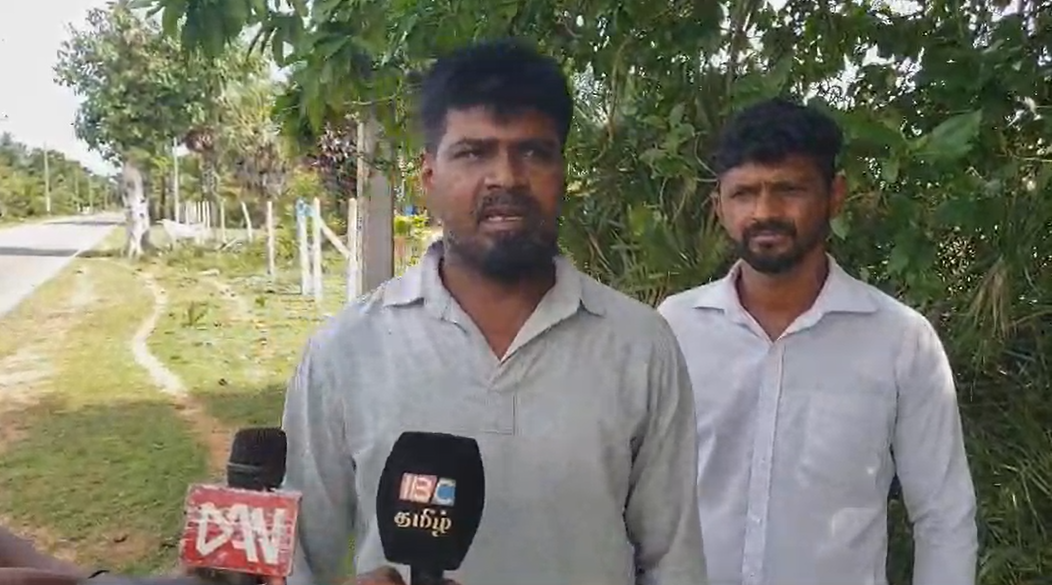
Tamil volunteers in Batticaloa preparing for Maaveerar Naal, an annual commemoration for fallen Tamil fighters, have been summoned by police over their preparation activities, in a reported attempt to disrupt preparations.
Velayudhan Baskaran, a volunteer organizing memorial activities at Tharavai Thuyilum Illam in Batticaloa, recounted his recent experience with the Sri Lankan police in Valachchenai, summoned him to the station on consecutive days. According to Baskaran, plainclothes officers summoned him and the Officer-in-Charge (OIC) issued explicit warnings against organizing any commemorative events.
He told the press that police officers in plain clothes had visited his home and told him that he had to report to the Valaichchennai the following morning over his actions to arrange commemorations for Maaveerar Naal.
“They told me we cannot use loudspeakers, sing songs, tie flags, or even use karthigai poo (a traditional flower of remembrance), we cannot say that we are doing anything in remembrance of our heroes,” Baskaran said. "We were warned that any such actions would result in legal consequences."
This crackdown mirrors broader state policies aimed at curbing Tamil expressions of grief and remembrance. Authorities often cite national security concerns. However, Tamils argue that these restrictions amount to systemic repression of their right to mourn the dead. The suppression of Maaveerar Naal is not new. Since the end of the armed conflict in 2009, successive governments have sought to control the Tamil community's ability to publicly commemorate their war dead. In many cases, police and military forces have dismantled memorial sites, banned symbolic flowers and flags, and filed legal cases against participants. Even expressions of mourning, such as lighting candles, are often met with suspicion.
In Batticaloa, the police in Valachchenai informed Baskaran that a court order would dictate the terms under which any event could proceed. “We were told we could only use flags that are not associated with the LTTE. Even gathering people for such an event is prohibited,” Baskaran said. “A life lost is still a life worth remembering, regardless of where they stood in the conflict.”
Local Tamil representatives have repeatedly criticized these actions, asserting that the government is weaponizing laws to stifle Tamil political expression. Baskaran expressed frustration at the persistent suppression of Tamil mourning rituals. “This is disheartening,” he said. “We now have representatives in parliament, and we urge them to stand up for us. When will this end?”
For many Tamils, the continued denial of their right to grieve underscores their marginalization by the Sri Lankan state.
